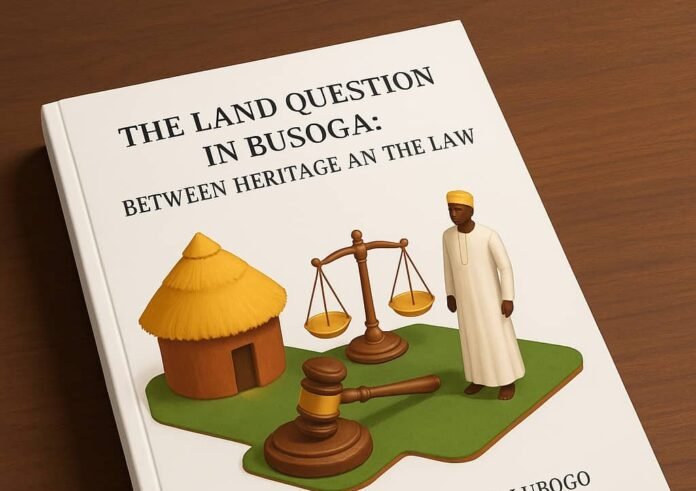By Isaac Christopher Lubogo
1. Introduction: Land as the Soul of Busoga
Land is not merely soil; in Busoga, land is memory, identity, and legitimacy. To ask whether the Kyabazinga or the Busoga Kingdom has land is to probe the very essence of cultural sovereignty in a modern legal state. Land is where palaces rise, where enthronement drums thunder, and where ancestors rest. Yet land is also title deeds, statutory registers, and eviction notices. It is here—in the collision between heritage and legality—that the current Busoga saga unfolds.
2. The Legal Standing of Busoga Kingdom
The 1995 Constitution of Uganda restores cultural institutions as corporations sole—legal persons capable of holding property. Article 246 recognizes that a kingdom may hold assets and land in trust for its people. In addition, the Traditional Rulers (Restitution of Assets and Properties) Act, 1993 allows for restitution of confiscated assets taken during Obote’s abolition of kingdoms.
Thus, the Busoga Kingdom—through the office of the Isebantu Kyabazinga wa Busoga—is legally entitled to hold institutional land. This is distinct from land held privately by the Kyabazinga as an individual.
3. The Crown Jewel: Igenge Hill
At the heart of this legal storm is Igenge Hill, Bugembe, Jinja—the traditional palace and seat of the Kyabazinga. Historical records trace kingdom ownership back to the 1930s, yet encroachers, claimants, and speculators brandish competing titles. Recent litigation has exposed the fragility of Uganda’s land registry, where fraudulent titling, double allocations, and political interference are common.
Igenge Hill is therefore more than a hill; it is the battlefield of history versus modern land law, of heritage versus speculative capitalism.
4. The Katukiro and the Question of Evictions
Recent reports show the Katukiro of Busoga, Dr. Joseph Muvawala, accused of orchestrating evictions in Jinja and surrounding areas. The State Minister for Lands has threatened arrest, insisting that no eviction can proceed without a court order.
Here the law is clear:
Under the Land Act (Cap. 227), lawful and bona fide occupants cannot be evicted except by a court order and after six months’ notice.
Article 246 also bars cultural leaders from exercising governmental or administrative authority.
Thus, however genuine the Kingdom’s ownership claims, extra-judicial evictions by cultural offices violate Uganda’s land regime. The Kyabazinga’s institution is a trustee, not a coercive landlord.
5. The Devil in the Details: Occupants and Tenants
Busoga’s land disputes expose Uganda’s dual tragedy:
1. Fraudulent titling—where officials collude to register land already held by cultural institutions.
2. Tenants by occupancy—families who have lived on kingdom land for decades, paying no rent but protected by law.
The Kingdom claims fraud; the people cry displacement. In truth, both are right: fraud must be punished, but tenants must be protected.
6. The Philosophy of Custodianship
The question is not whether Busoga Kingdom has land, but how it must use that land. The law sees the Kyabazinga as a trustee, not an absolute monarch. Here, the philosophy of Ubuntu becomes instructive: “I am because we are.”
If the Kyabazinga’s office evicts mercilessly, it betrays its role as custodian of heritage.
If occupants exploit fraudulent titles to dispossess the institution, they betray the collective memory of Busoga.
True leadership requires balancing law, heritage, and humanity.
7. The Silent Question of Power
Why do evictions by cultural institutions cause such pain? Because they strike at the paradox of traditional authority in a constitutional state. The Kyabazinga carries moral legitimacy, but the Constitution strips him of executive power. When that office appears to act like the state, the tension explodes: is heritage now an oppressor?
This is the philosophical crisis Busoga faces: when a custodian becomes a claimant, the line between protection and possession blurs.
8. Lessons from the Saga
1. Heritage must litigate, not evict. The Kingdom should fight fraudulent titles in court, not in the fields.
2. The State must reconcile law and culture. A transparent framework between the Ministry of Lands and Busoga Kingdom is needed to catalogue and protect kingdom assets.
3. Occupants need voice and justice. Bona fide tenants must be shielded from arbitrary displacement, even on kingdom land.
4. The Katukiro must be restrained by law. Evictions cannot be executed by cultural offices; only courts may authorize.
9. Conclusion: A Drumbeat for Justice
Busoga Kingdom does have land. The Kyabazinga’s office has both historical and legal claim to institutional estates. But in the modern age, ownership is not absolute; it is stewardship bound by law and morality.
If the Katukiro evicts outside due process, the institution risks becoming what it was never meant to be: not a refuge for the people, but a landlord feared by them. If government ignores the Kingdom’s heritage claims, it risks alienating an entire culture.
The way forward is neither eviction nor impunity, but justice through law and compassion through heritage. For Busoga, the true wealth of the Kyabazinga is not measured in acres, but in the trust of his people.
> “When the drumbeat changes, the dance must also change.” — African Proverb.








